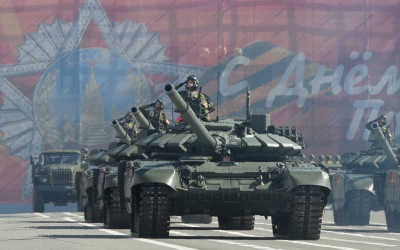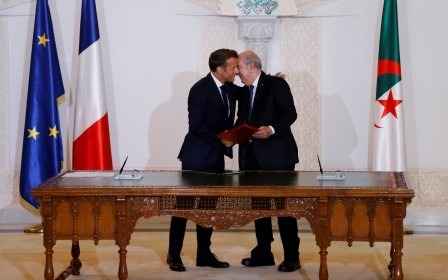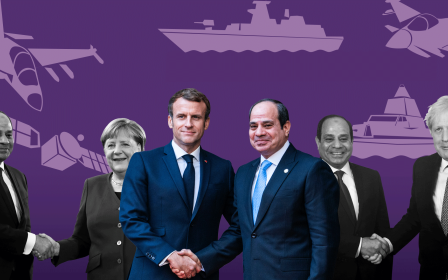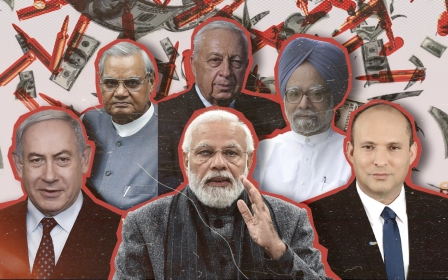Russia-Ukraine war: Algeria could face weapons crisis due to conflict, say analysts
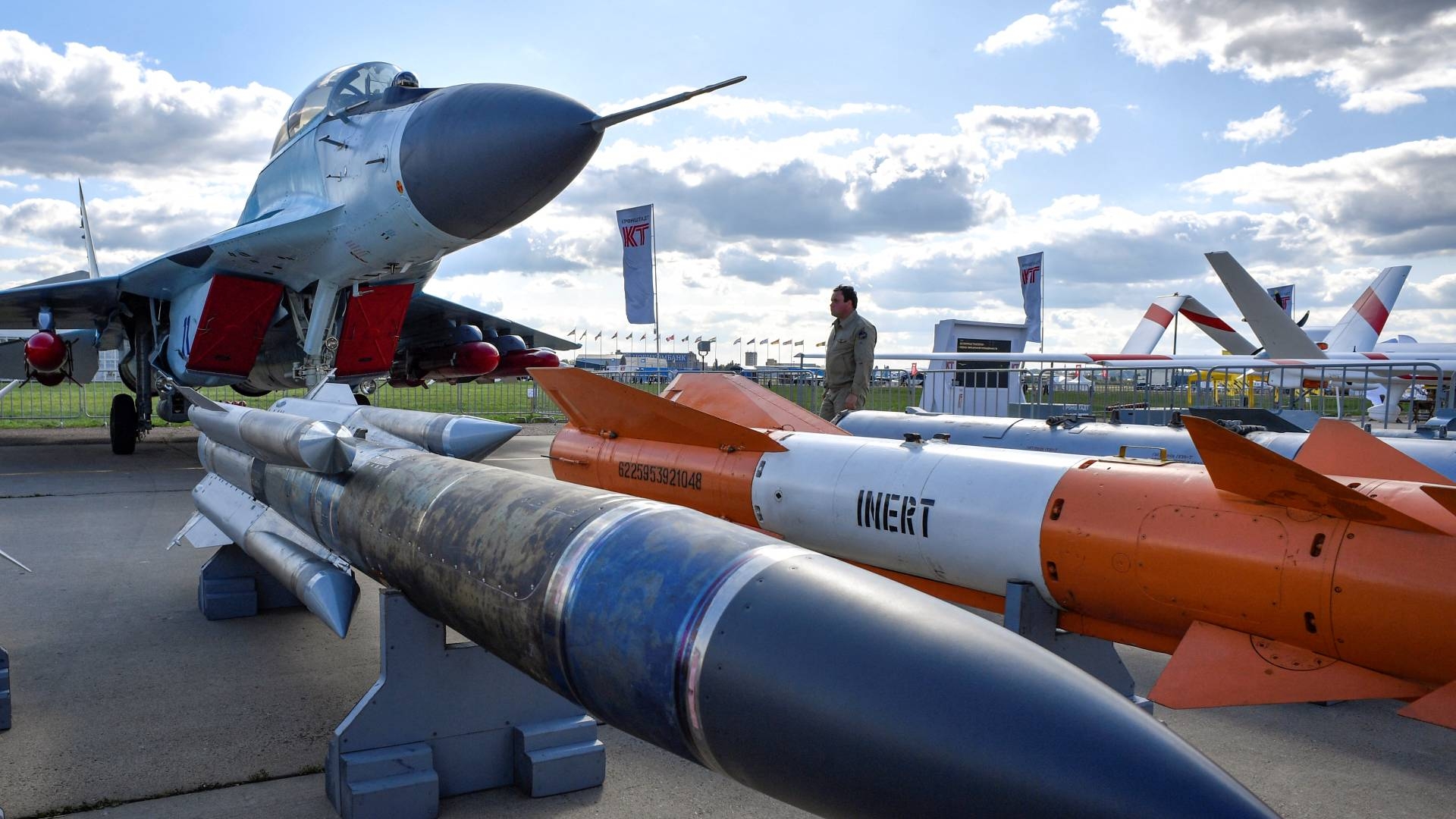
Russian weapons sales to Algeria are likely to fall as a result of the conflict in Ukraine, but the North African country is so heavily reliant on Moscow for its military hardware that it's an uphill battle to look for alternatives elsewhere, analysts say.
Importers of Russian weaponry are facing increased risks of supply shortages, with Russian manufacturers racing to meet the needs of their own country's military.
The bloody six-month conflict has reportedly claimed the lives of between 70,000 and 80,000 Russian soldiers according to US estimates, and forced Moscow to use old tanks as it burns through its military arsenal, senior European officials have suggested.
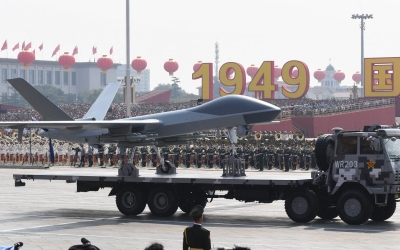
If the reports are accurate and Moscow is prioritising its front lines over exports, the decision could have a disastrous impact on Algeria, which represents an estimated 15 percent of Russian arms exports, according to the US Congressional Research Service.
Algeria's air force largely consists of MiG-29 and Su-30 fighter jets. Meanwhile, the Algerian army operates hundreds of T-90 and T-72 main battle tanks and its Territorial Air Defence Force has long-range S-300 and S-400 air defence missile systems.
Samuel Bendett, a research analyst with the Center for Naval Analyses, said there were currently no indications that Algeria is reconsidering its defence relations with Moscow.
"It's possible that given how much Russian-made hardware is already in Algeria and given decades of local experience using such technology, Russia may opt for some form of localised arms production in the North African country," he told Middle East Eye.
Alternative suppliers
Mark Katz, a nonresident senior fellow at the Atlantic Council and professor at George Mason University's Schar School of Policy and Government, also said that Algeria would likely "try to continue buying Russian weapons" for the foreseeable future.
Katz told MEE that "the types and quantities Algeria wants may be less available due both to Russian production difficulties and Moscow's own need for Russian weaponry in its war with Ukraine".
'If Moscow wants Algeria to remain a 'loyal client', it must supply that client with what it wants'
- Mark Katz, George Mason University
"If so, Algeria may well seek weapons from other suppliers which will not link weapons sales to human rights issues or democratisation."
In that scenario, Algeria might turn to China, Turkey or even European powers for arms.
"I would not be surprised if Italy or another European country seeking increased Algerian gas to replace supplies from Russia tried to sweeten the deal by offering to sell arms to Algeria," he said.
"Nor do I think the US would object too strenuously under current circumstances."
Enduring defence relations
Earlier this year, US Secretary of State Antony Blinken appealed to Algerian President Abdelmadjid Tebboune to re-think Algiers' ties with Moscow, following the invasion of Ukraine's Donbas region.
"The countries of North Africa and the Middle East have experienced themselves the consequences of Russia’s military campaigns before," Blinken said during his trip to Algiers, where he noted Russia's previous forays in Syria and Libya.
"There are times when one issue emerges that is so clearly black and white… it's important to stand with the victim and to stand with the principles that have also been violated."
While the US has tried to pressure several Middle East states into shunning Russia, Tebboune has continued to play host to Russian officials and previously referred to Russia as a "brotherly country".
Katz anticipates that Moscow may use the upcoming Desert Shield joint military exercise between Algeria and Russia, set to take place in November near the Moroccan border, to "keep Algeria onside".
"If Moscow wants Algeria to remain a 'loyal client', it must supply that client with what it wants. And Russia may simply not be able to at present," he said.
Reassurances
Earlier this year, the Biden administration imposed sanctions on Russia's defence industry. In addition to affecting Moscow, these sanctions also affect countries that import Russian military hardware.
A State Department official told lawmakers in early March that it was unlikely the Kremlin would be able to make new sales or provide maintenance to customers for existing systems.
"My view is that it's going to be very hard for anyone to buy major weapon systems from Moscow in the coming months and years, given sweeping financial sanctions that the administration, with the support of Congress, has levelled," Donald Lu, the assistant secretary of state for South and Central Asian Affairs, told a Senate Foreign Relations subpanel.
Anton Mardasov, an independent Russian analyst and nonresident scholar of the Middle East Institute's Syria programme, told MEE that Moscow would be "taking steps to show that the war in Ukraine does not affect its position in the region or its military exports in any way".
"Therefore, of course, negotiations with Algeria are likely to be intensified," he said. "As it became known in July, Algeria and Russia are preparing to sign a strategic partnership document, which will certainly include issues of military and technical cooperation.
"In addition, Algeria has taken a rather pro-Russian stance in the situation with Ukraine, which is echoed in Moscow, and is preparing to become more active in the Sahel zone."
Closer non-military cooperation
Nevertheless, Mardasov stressed that the "devil is in the details".
"The Algerian-Russian trade turnover is not increasing, but on the contrary, it is decreasing, and among Algerian economic partners, due to natural partners, are dominated by Europeans and China, which fill all the niches associated with the supply of industrial goods," he said.
Mardasov said that while Algeria has "bought almost the entire range of weapons it needs from Russia, which implies close cooperation with Russia in terms of maintenance and supply of ammunition", the most pressing issue facing that country today is food security.
Algeria heavily subsidises staple food products such as cooking oil, milk and bread, and banned the export of basic foods earlier this year over fears of shortages.
Algeria has grappled with shortages of certain foods before the conflict erupted in Ukraine, and while oil and gas revenues rose 70 percent in the first five months of 2022, the country is facing a rise in its budget deficit which could affect food subsidies.
"In terms of increased competition, I expect closer coordination on non-military issues," Mardasov said. "For example, Moscow may offer to build a nuclear power plant."
This article is available in French on Middle East Eye French edition.
Middle East Eye delivers independent and unrivalled coverage and analysis of the Middle East, North Africa and beyond. To learn more about republishing this content and the associated fees, please fill out this form. More about MEE can be found here.


